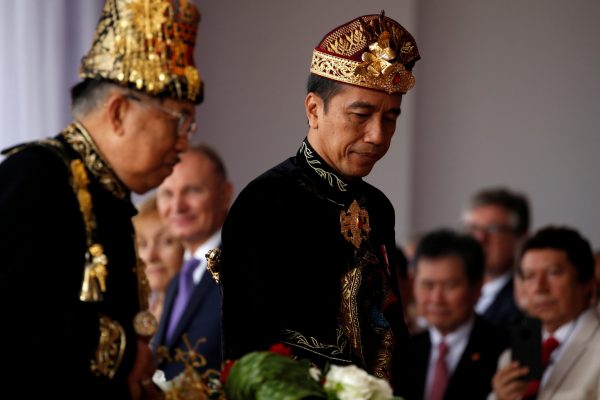Author: Muhamad Arif
Affiliation: Department of International Relations, Faculty of Social and Political Sciences, Universitas Indonesia (Depok, Indonesia)
Organization/Publisher: Journal of Asian Security and International Affairs – SAGE Journals
Date/Place: September 22, 2021/USA
Type of Literature: Research Article
Number of Pages: 21
Link: https://journals.sagepub.com/doi/full/10.1177/23477970211041455
Keywords: Indonesia’s Foreign Policy, Jokowi, Neoclassical Realism, South China Sea
Brief:
The article seeks to understand Indonesia’s foreign and security policies implemented in the South China Sea dispute by President Joko Widodo (Jokowi). The author analyzes Jokowi’s foreign and security policies in the South China Sea using a neoclassical realist framework. The author argues that it would be best to understand Indonesia’s foreign and security policies using a neoclassical realism framework because it appears that the domestic factors are intervening in the foreign and security policies. The South China Sea is important for Indonesia in three ways; first, rising tension and conflict in the region, especially those that involve major powers, would put foreign investments in Indonesia at risk. Second, it’s important for Indonesia’s maritime territorial integrity. Third, it’s important in the context of leadership in ASEAN. Indonesia has arguably implemented an active and pragmatic diplomacy—and an assertive approach to territorial integrity in the South China Sea. However, the author claims that it’s not merely the external threat that drives Jokowi’s foreign and security policies. Instead, it’s Jokowi’s personality on foreign policy and his administration’s domestic agenda that influence Indonesia’s foreign policies. Jokowi comes from a business background, so the industrialization plan and economic growth have been Jokowi’s number one priority during his administration; this enthusiasm is matched by his lack of international political concerns. For him, foreign policy is an instrument for infrastructure and economic growth. For instance, Indonesia is taking an assertive measure against illegal fishing in the region; illegal fishing costs Indonesia around US$20 billion annually, so solving this issue could ensure Jokowi’s political legitimacy and accomplish his ambition on economic growth.
By: Salman Nugraha, CIGA Research Intern




